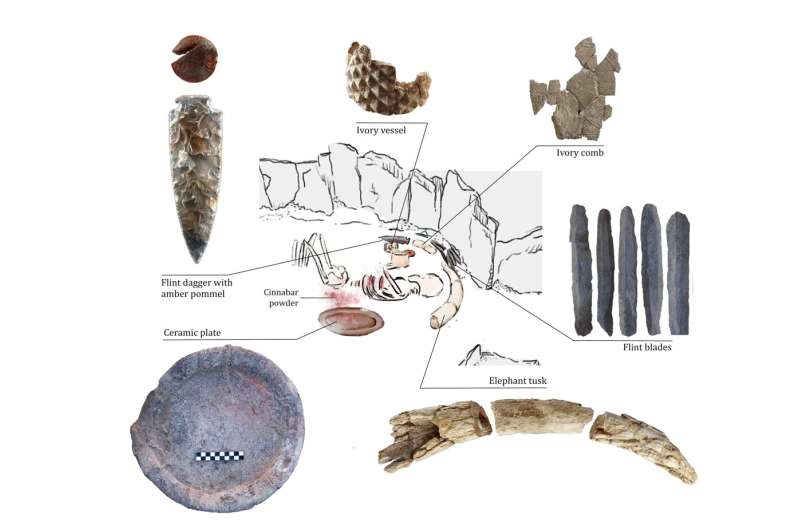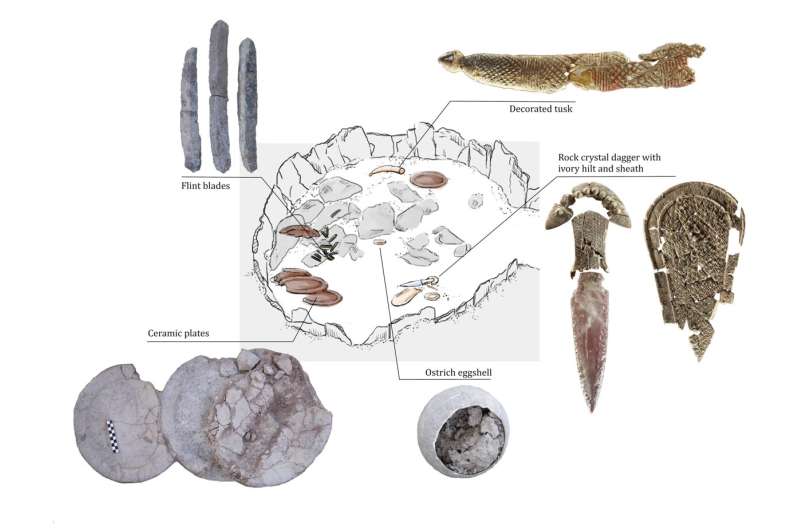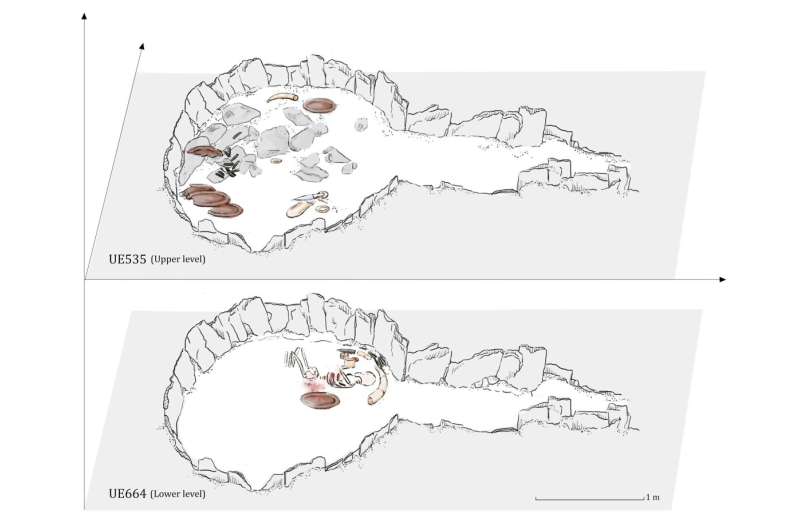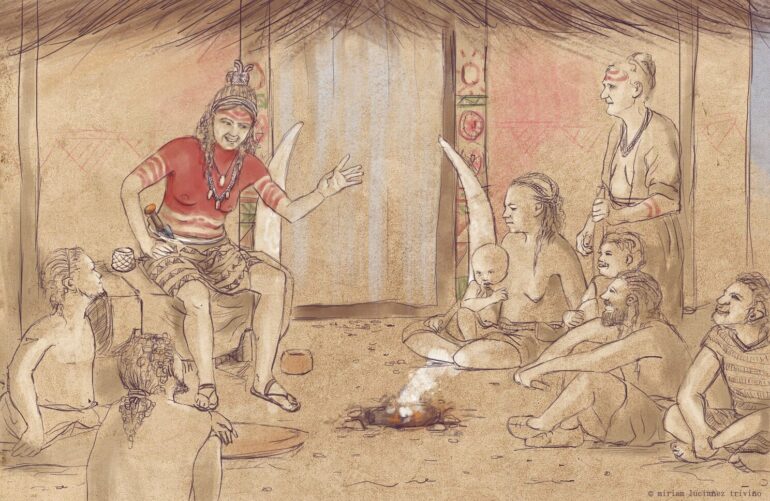The highest status individual in ancient Copper Age society in Iberia, was a woman and not a man as previously thought, according to peptide analysis reported in Scientific Reports.
The individual, now re-dubbed the “Ivory Lady,” was buried in a tomb filled with the largest collection of rare and valuable items in the region, including ivory tusks, high-quality flint, ostrich eggshell, amber, and a rock crystal dagger. These findings reveal the high status women could hold in this ancient society.
In 2008, an individual was discovered in a tomb in Valencina, Spain dating to the Copper Age between 3,200 and 2,200 years ago. As well as being a rare example of a single occupancy burial, the grave contained a large number of valuable goods, suggesting that this individual—originally thought to be a young male aged between 17 and 25 years. —held a high status within society.

Individual buried in the lower level of the structure 10.049, and main artifacts deposited around the body. © Miriam Lucianez Trivino.
Marta Cintas‑Peña and colleagues used amelogenin peptide analysis to test for the presence of the sexually-dimorphic enamel-forming protein amelogenin in the teeth of the specimen. Analysis of a molar and an incisor detected the presence of the AMELX gene—which produces amelogenin and is located on the X chromosome—indicating that the individual was female rather than male.

Upper level of structure 10.049, and main artifacts included in the offering. © Miriam Lucianez Trivino.
According to the authors, this means that the highest ranked person in Iberian Copper Age society was a woman. Additionally, the lack of grave goods in infant burials suggests that, in this period, individuals were not granted high status by birth rite. The authors therefore suggest that the Ivory Lady achieved her status through merit and achievements in life.

Structure of 10.049, plans of the lower and upper levels. © Miriam Luciañez Triviño.
The authors report that no male of similarly high status has yet been found. As the only comparably lavish Copper Age tomb in the region, containing at least 15 women, was found next to the grave of the “Ivory Lady” and is presumed to have been built by people who claimed descent from her. This suggests that women occupied positions of leadership in Iberian Copper Age society.
More information:
Marta Cintas-Peña, Amelogenin peptide analyses reveal female leadership in Copper Age Iberia (c. 2900–2650 BC), Scientific Reports (2023). DOI: 10.1038/s41598-023-36368-x. www.nature.com/articles/s41598-023-36368-x
Provided by
Nature Publishing Group
Citation:
The power of the Copper Age ‘Ivory Lady’ revealed (2023, July 6)



